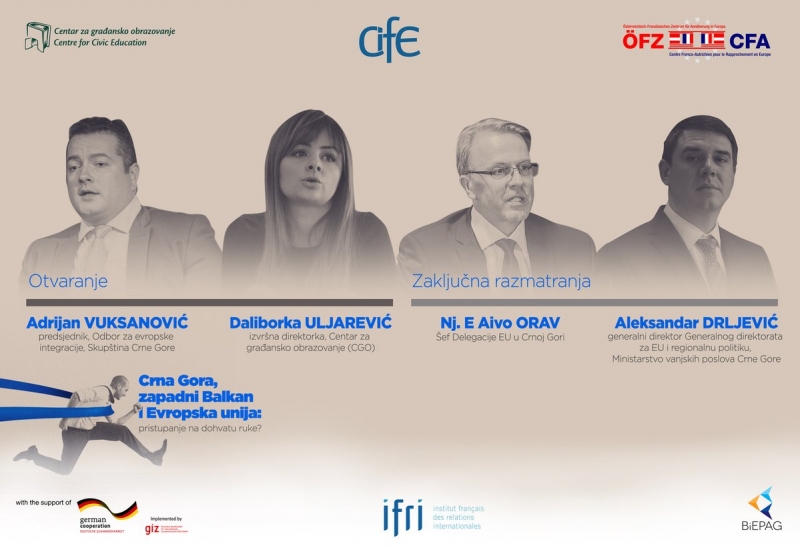The event discussed the importance of the Berlin Process and the EU Enlargement Strategy, as well as the challenges and internal reforms of Montenegro on its path to full membership
Chairperson of the Committee on European Integration Mr Adrijan Vuksanović opened the roundtable “Montenegro, Western Balkans and the European Union: accession within easy reach?”, held today in the organisation of the NGO Centre for Civic Education. Mr Vuksanović said that said that Montenegro had only one path - the European one, and that external pressure positively influenced the process and implementation of social and economic internal reforms, especially emphasising that stability of the Western Balkans also affected the stability of the European Union.
Furthermore, Mr Vuksanović said that Montenegro was looking forward to the progress of its neighbours in the integration process, but that it was focused on its own path, simultaneously advocating for assessing the progress of the integration process on the basis of individual merits. He added that the Parliament of Montenegro would continue to give its contribution by supervising the Government’s work.
Topics such as “How much the Berlin Process contributes to the new EU enlargement strategy” and “Montenegro: a frontrunner in the race or pioneer among the Western Balkans countries on the path to the EU?” were covered in the continuation of the meeting, when importance and contribution of the WB was highlighted in respect of migrant crisis. Cooperation and better connectivity among regional countries and EU members was emphasised, and it was undoubtedly noted that the Berlin Process served as an inspiration for the EU's Enlargement Strategy, adopted by the European Commission. In the continuation of the debate, the contribution of the Berlin Process was discussed in the field of economic and infrastructural connectivity of the regional countries.
The roundtable participants agreed on the significance of the stability of the European Union, which will therefore make it more accessible to other candidate countries, as well as the importance of further work on strengthening the rule of law in the region.












